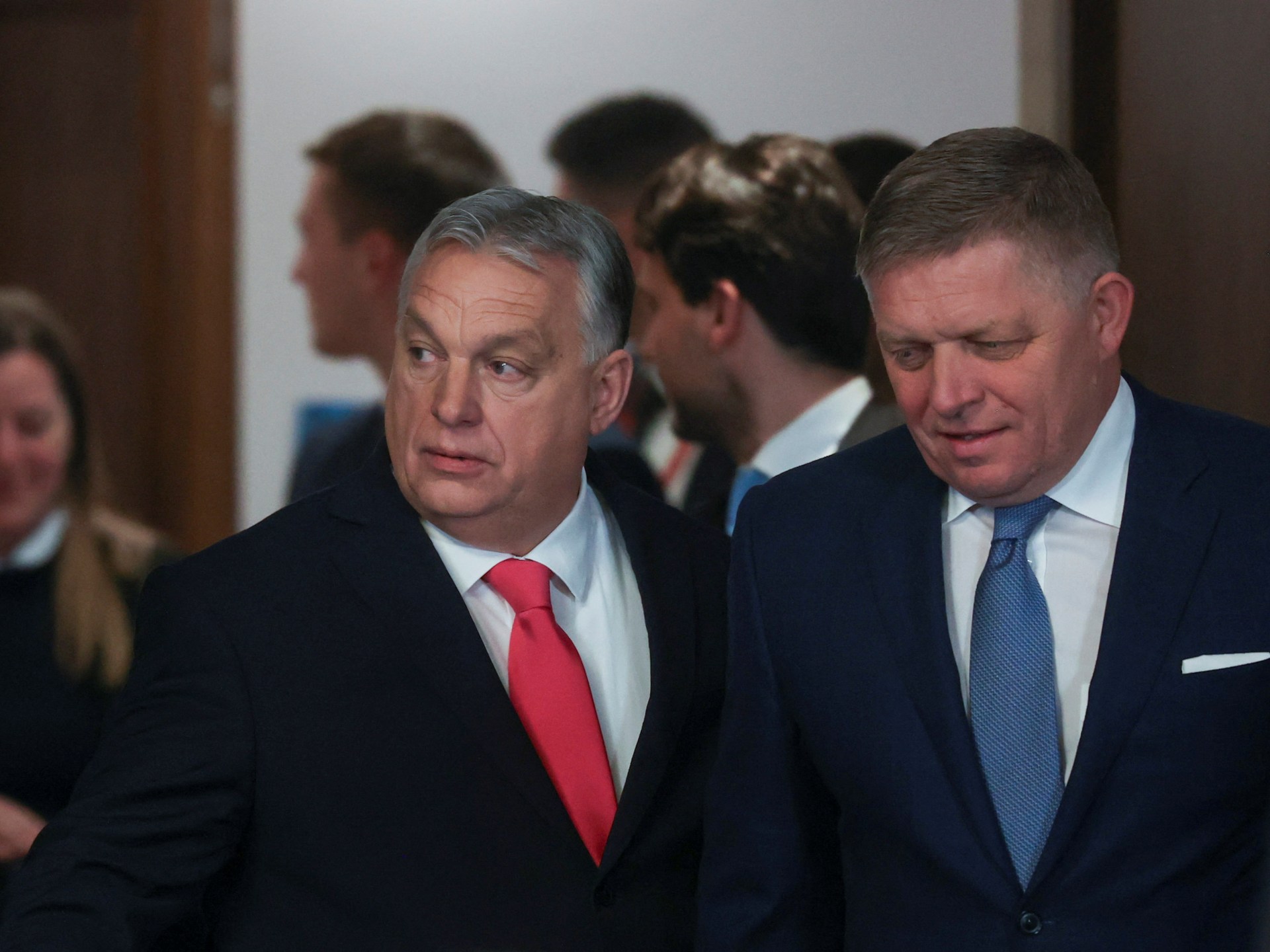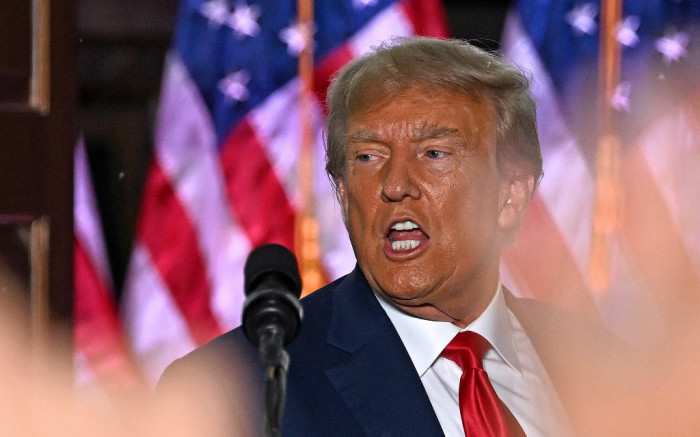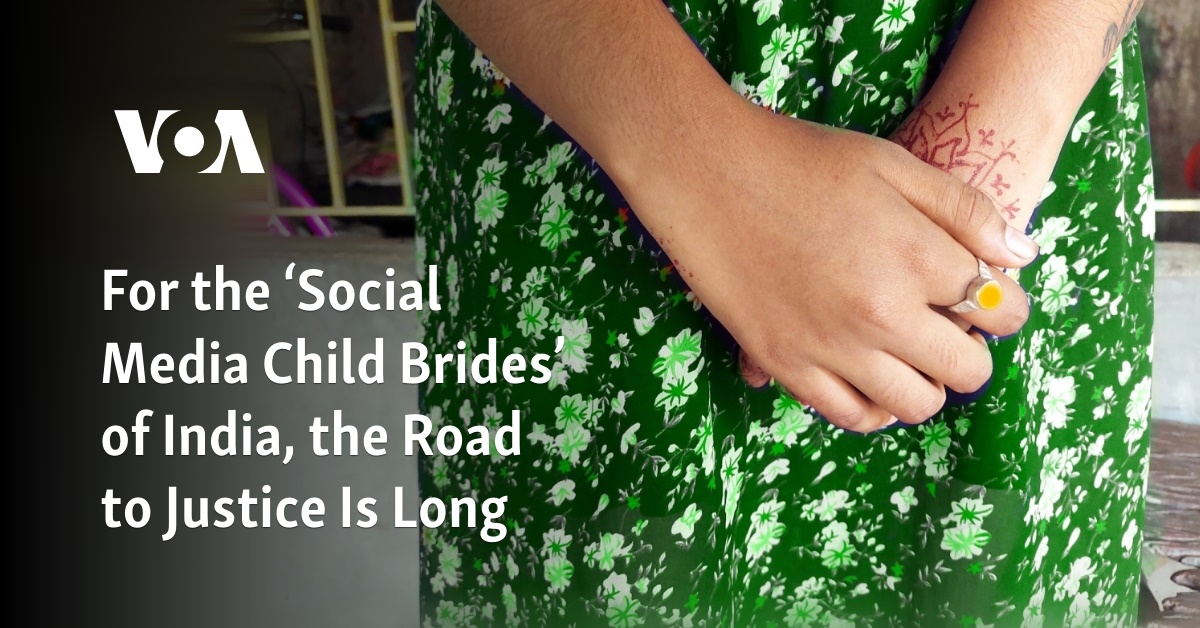
European Union leaders are preparing for a crucial meeting that will be marked by a second attempt to pass a 50 billion euro ($54 billion) amendment to the EU budget that will help finance the Ukraine will contribute over the next four years.
That change was rejected by Hungary at the regular summit in December, along with 20 billion euros ($21.7 billion) in military aid to Ukraine for 2024.
The EU’s executive arm, the European Commission, is reportedly hoping to bring Hungary on board at Thursday’s meeting by offering Prime Minister Viktor Orban the opportunity to block continued support next year, when the EU would consider whether Ukraine still needs the money and meets the requirements to receive it.
EU support was crucial to Ukraine’s war effort.
The bloc has spent more than 40 billion euros ($43 billion) to support Ukraine’s budget and 27 billion euros ($29 billion) in military aid since the war began nearly two years ago, in addition to 17 billion euros ($18 billion). .4 billion US dollars) to support millions of Ukrainian refugees in Europe.
This year, the Ukrainian budget faces a deficit of $48 billion.
There is a more coercive approach.
This month, the European Parliament condemned Orban’s December veto and called on the European Council of EU leaders to investigate Hungary for “serious and persistent violations of EU values.”
This obliges the Council, which still wields ultimate power in the EU, to initiate a procedure that could ultimately lead to Hungary suspending its voting rights and taking away its veto power.
But Europe launched such a procedure, known as Article 7, against Hungary in 2018, and it failed because the system requires unanimity in the Council and Poland supported Hungary.
Poland has a new center-left government friendly to Ukraine and no longer allied with Orban, but Slovakia brought Robert Fico’s Smer party to power last year, to Orban’s undisguised delight.
Both men are Eurosceptics and have a hostile relationship with Brussels. Fico immediately stopped providing military aid to Ukraine after taking office and expressed support for Orban this month.
“I will never agree that a country should be punished for fighting for its sovereignty. I will never agree to such an attack on Hungary,” he said in a joint press conference with Orban.
“It won’t get through.”
“Article 7 would need a consensus that all member states would support it, but Slovakia would not and the Netherlands would almost certainly not either. That’s why I would argue that it won’t pass,” Katalin Miklossy, a lecturer in Eastern European studies at the University of Helsinki, told Al Jazeera.
The front-runner in last year’s Dutch parliamentary election was the party of far-right leader Gert Wilders, who has yet to form a government but has also said aid to Ukraine should be cut.
EU members could continue to provide assistance through a special instrument outside their regular budget, which Orban said he would not oppose, or by allowing member states to help Ukraine bilaterally.
These approaches have disadvantages. They are more expensive and deprive the EU of a unified voice in foreign policy, making it appear weak when war rages on European soil. They do not address the problems in Hungary itself, which the European Parliament described as an “electoral autocracy” that contradicts EU values. EU aid worth 30 billion euros ($32.5 billion) has already been suspended because of manipulation of the judiciary and suppression of freedom of expression and minority rights.
From a practical perspective, what is most important is that these approaches do not tie up aid at a time when the EU consists mainly of governments and a European legislature willing to help Ukraine. Many observers expect the European Parliament elections in June to produce a less favorable legislature towards Kiev – and Orban could be banking on that.
“Unfortunately, Victor Orban reads the cards correctly,” said Miklossy. “He understands that the tide is changing in the EU. There are more and more voices in the EU that want the Ukrainians to just sit down at the table and negotiate peace with the Russians because we cannot afford to support Ukraine forever.”
From this perspective, Orban is waiting for a Eurosceptic government in Austria this fall, where the far-right Freedom Party has led polls for a year, and in Germany next year, where the far-right Alternative for Germany has doubled its following in the last 18 months and is now in second place in polls behind the Christian Democratic Union.
Orban may be right about European trends, according to a survey released this month by the European Council on Foreign Relations (ECFR). It found that climate change, pandemics, immigration and fears of global financial instability represented Ukraine’s existential fears in nine European countries surveyed.
“Our concern was that there would be politicians who would certainly try to follow the trend and openly express the need to stop supporting Ukraine, because they believe that the trend is in that direction and where it will go in the future “We can find voters,” ECFR Pawel Zerka told Al Jazeera.
Reduce support?
Orban, Fico and Wilders have all posed as peacemakers.
In a May 2022 poll, ECFR found that a larger group of Europeans supported peace at the expense of dividing Ukraine than justice in which Ukraine would fight to retake all of its lands.
In March last year, the Justice Camp defeated the Peace Camp 38 to 29. The ECFR attributed this to Ukraine’s successes on the battlefield, the unity of the left and right in Ukraine, and the strength of the US leadership.
Now the pendulum appears to be swinging back in the peace camp’s favor, Zerka said, because two of those factors, the U.S. role and battlefield success, “have begun to evaporate.”
Like the EU, the US has delayed approving military aid to Ukraine this year.
British historian Mark Galeotti agreed that the US factor was key.
“I think if the Americans start to really limit their support for Ukraine, that will be an excuse for a lot of European countries to say, ‘Well, there’s not much we can do,’ instead of thinking, ‘We should actually. ‘ grow with the task. “This is our continent, after all,” Galeotti recently told the Futucast podcast.
Hungary made different decisions
At least for Hungary, resistance to Ukraine is about more than just winning votes.
Hungary has been courting Chinese and Russian investments since Orban came to power in 2010.
In 2013, Hungary became the first country, alongside China, to sell a renminbi-denominated bond on the international market. Four years later, it became the first Eastern European country to sell a renminbi bond in China itself.
Jens Bastian, a fellow at the German Institute for International Politics and Security, told Al Jazeera that it pays to identify with China in financial jargon.
“[Hungary and Serbia] “We will be the largest recipients of Chinese foreign direct investment in Central and Eastern Europe in 2023,” Bastian said.
China is building and partially financing a high-speed railway between Budapest and Belgrade. Chinese electric vehicle battery maker CATL is investing $7.6 billion to build a battery factory in the Hungarian city of Debrecen.
“It would be Europe’s largest electric battery system. It would be CATL’s largest single investment abroad and the second facility in Hungary,” said Bastian.
As it invests in a manufacturing economy, Hungary is seeking cheap energy, Miklossy said, and is among a group of landlocked EU states (along with Slovakia, Austria and the Czech Republic) that successfully applied for exemptions from a ban on Russian oil imports earlier this year fought in 2022.
Some of these countries, Bastian said, represent “an axis of unwillingness among EU and NATO members who are, in effect, following Putin’s orders.”
For example, last month Orban not only vetoed Ukraine aid but also forced Bulgaria to raise transit fees for Russian gas to Serbia and Hungary.
But what looks like economic interests also has political significance, said Bastian.
“They show the EU, multilateral organizations such as the European Bank for Reconstruction and Development, the International Monetary Fund, the European Investment Bank: ‘We are looking for alternatives and finding them successfully.'”
Why? Because “Orban and Fico want to see a completely different EU, not based on the rule of law,” Tymofiy Mylovanov, director of the Kyiv School of Economics, told Al Jazeera.
“It is… a collection of countries with authoritarian populist leaders. They don’t want to leave the EU. They want to change the rules. They don’t want to adhere to the Brussels rules.”






Recent Comments